The Russian rhythmic gymnastics juggernaut yesterday collapsed at the Tokyo Olympic Games, with dramatic back-to-back losses that sparked furious allegations of injustice in a sport famous for twinkling costumes, techno remixes and hoops looping through the air.
Russia had won every gold medal in rhythmic gymnastics since 2000, but its total defeat this year began on Saturday, when Linoy Ashram of Israel won gold in the individual competition, edging out of a pair of Russian identical twins who were the favorites heading into Tokyo. Dina Averina placed second and her sister, Arina, fell to fourth.
In yesterday’s group competition, Russia tumbled again into second place, losing the gold to Bulgaria. Italy took the bronze medal.
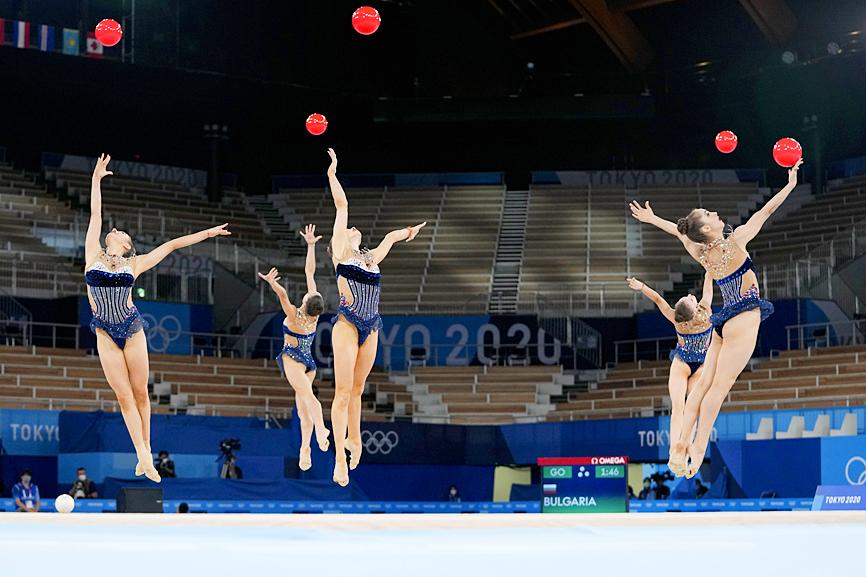
Photo: AP
“It’s so unreal, we cannot believe it. I don’t know what to say,” Bulgarian gymnast Stefani Kiryakova said. “This is the happiest moment ever.”
The rhythmic gymnastics group finals are a two-part competition for groups of five women. Part ballet, part gymnastics, part circus, the event begins with the teams dancing with balls, then moves on to a set of hoops and clubs.
Bulgaria pulled ahead after the first routine, performed to a lively Bulgarian folk song called Water Cosmos Earth. Their orange-red balls looked like fire as they soared through the air.
The Russians performed to traditional opera in pink, blue and gold costumes that made them look like spinning toy dolls.
As the scores appeared on the arena’s screen after the second round, the Russian gymnasts wept, as the Bulgarians jumped in shocked triumph.
“We have very mixed emotions, of course there is joy, but there is also sadness,” Russian gymnast Anastasiia Maksimova said after the competition, tears still in her eyes. “We competed at our maximum and we were fighting for our country, we were fighting for our individual gymnasts, we were fighting for our team, and we were fighting for our coaches. We did what we could.”
The reaction in Russia has been brutal. The country is barred from using its name, flag or anthem at the Olympics because of a doping scandal. Its athletes compete under the banner of the Russian Olympic Committee (ROC).
Social media discussions have been full of allegations of a conspiracy to hurt Russia’s medal count and some lawmakers have weighed in with their own theories.
Head coach Irina Viner-Usmanova told the RIA Novosti state news agency that “everyone understood perfectly well that this was meant to happen, that Russia’s hegemony had to be stopped.”
The night the Israeli won the individual competition, ROC president Stanislav Pozdnyakov called on the International Gymnastics Federation to do an inquiry into the judging.
“Our staff and lawyers have already drawn up a request and sent it to the leadership of the International Gymnastics Federation,” Pozdnyakov wrote on Instagram.
Dina Averina, the 22-year-old gymnast who won the silver medal, also said shortly after the competition that she believed the judges had not been fair to her from the start of the competition, when Ashram quickly took the lead.
A post-Olympic photograph she chose to post on her Instagram captures her in the moment she learned she had lost, still in a bedazzled red leotard and a tight bun atop her head, standing with her arms crossed and her brow furrowed.
She later gave an emotional interview with sports broadcaster Match TV.
“It hurts and it’s painful that there was unfair judging today,” she said, adding that Ashram dropped her ribbon near the end of the competition, a major mistake in the sport. “I got through all of the disciplines more or less cleanly, properly and came second. I’m hurt by the injustice, I support honest sport.”
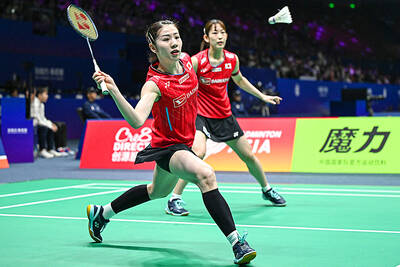
Japanese badminton star Chiharu Shida on Tuesday told Chinese fans to “stop stalking” her, adding that she was “very scared” by the unwanted attention. Shida, who won women’s doubles bronze at the Paris Olympics last year, has a strong following in China partly because of her engagement with the local culture. The 27-year-old, currently competing at the Badminton Asia Championships in Ningbo, China, has been dubbed the “Badminton Goddess” by fans and media. She hit out at some supporters on Tuesday, accusing them in an Instagram post of taking their fandom too far. “Every time we compete in China we always experience the harm
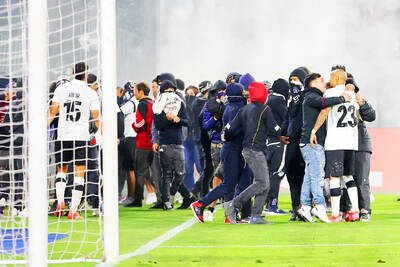
Two people died on Thursday after fans and police clashed outside the Estadio Monumental in Santiago ahead of a game in South America’s Copa Libertadores, Chilean authorities said. The fatalities happened shortly before the match between Chile’s Colo-Colo and Brazilian club Fortaleza, when police blocked about 100 fans when they attempted to enter the stadium. There were conflicting accounts of how the fatalities occurred, with local media reporting that one of the dead was a 13-year-old boy. The other victim was an 18-year-old woman, according to a relative at the hospital where she was treated. The fans died after being caught underneath a
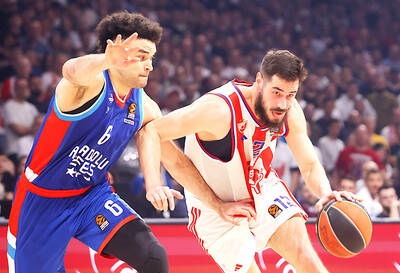
A potential European league could be a gold mine for the NBA as the top-flight North American league looks to muscle its way into a deep pool of talent across the Atlantic Ocean. The NBA is exploring the launch of a European league with world basketball governing body FIBA as a partner, NBA commissioner Adam Silver said last week, with an eye toward a 16-team format made up of 12 permanent clubs and four qualifiers. The continent’s longstanding Euroleague quickly signaled its readiness to enter into talks with the NBA, even as it has balked at the idea of another league in
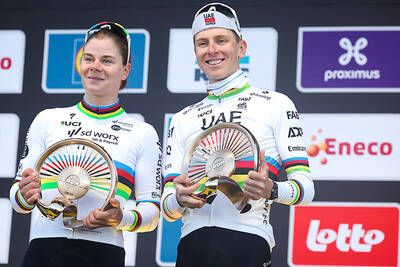
Tadej Pogacar on Sunday won an epic see-saw showdown at the Tour of Flanders, soloing home from 15km, with Mads Pedersen edging Mathieu van der Poel to second at the line a minute later with Wout van Aert fourth. The duel between the Slovenian and defending champion Van der Poel played out across the 17 hills in bright sunshine before Pogacar broke away. World champion Pogacar, who won the Giro d’Italia and the Tour de France last year, collected his eighth one-day Monument, moving ahead of one-day specialist Van der Poel on seven. “The goal was to win, but at